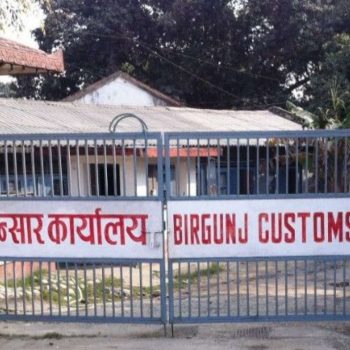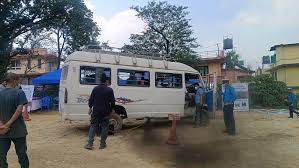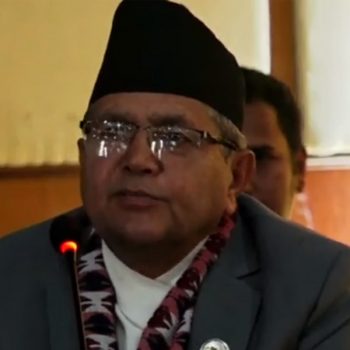“Nepali Community in Australia: Challenges and Support – A Collaborative Approach”

Australia has long been a melting pot of cultures, welcoming people from all corners of the globe to call it home. One such community that has seen significant growth in recent years is the Nepali diaspora. There are now over 130,000 (anecdotal) Nepali people residing in Australia, with an additional 60,000 Nepali international students pursuing their education in the country. This influx of Nepali residents and students has led to the establishment of vibrant communities in various Australian suburbs. However, this rapid growth also presents unique challenges that need to be addressed by both the government and the community itself.
The Top Suburbs for Nepali-born:
Nepali communities in Australia have formed strong bonds, primarily in the following suburbs: 1. Auburn, NSW
- Hurstville, NSW
- Strathfield, NSW
- Rockdale, NSW
- Campsie, NSW
- Granville, NSW
- Kogarah, NSW
- Glenroy, VIC
- Parramatta, NSW
- Ashfield, NSW
These suburbs have become hubs for Nepali culture, offering a sense of familiarity and community for those who have made the journey from Nepal to Australia. From restaurants serving traditional Nepali cuisine to cultural events and festivals, these neighborhoods have embraced and celebrated their new residents.
While the growth of the Nepali population in Australia is undoubtedly a positive development, it also brings forth various challenges that need to be addressed:
- Legal issues: Australia’s diverse cultural landscape extends far beyond the surface, encompassing the triumphs and challenges faced by each community. Among these communities, the Nepali population in Australia is no exception and, like any other, grapples with legal issues that demand attention and action. In particular, issues related to domestic violence, unconsented sex, and sexual offenses, employment exploitation, underpayment, and workplace sexual harassment require proactive measures to ensure justice and support for those affected. Initiatives must focus on raising awareness, offering legal education, and providing accessible resources tailored to the unique needs of Nepali immigrants. By addressing these legal concerns and fostering a culture of awareness and empowerment, the community can strengthen its resilience and create safer and more equitable environments for all its members within the multicultural society of Australia. Community can strengthen its resilience and create safer and more equitable environments for all its members within the multicultural society of Australia.
- Mental Health Issues: The process of migration and adjusting to a new culture can be emotionally demanding. Many Nepali immigrants may struggle with mental health issues such as depression and anxiety. Cultural nuances and language barriers can further complicate access to mental health services. Thus, the availability of culturally sensitive mental health support becomes paramount. Providing resources for counseling, therapy, and mental health education in Nepali languages can significantly enhance the community’s well-being. The Nepali community is facing a growing concern regarding suicide rates. The pressures of migration, adapting to a new culture, and the challenges of integration can take a toll on mental well-being. The rising number of suicides within the Nepali population underscores the urgent need for mental health support and intervention tailored to the community’s specific needs.
- Child Health Issues and Autism: The Nepali community in Australia has grown significantly over the years, and with it comes a unique set of challenges faced by parents, especially when their children are born with developmental issues like autism. While Australia has made strides in providing support for children with developmental disorders through the National Disability Insurance Scheme (NDIS), temporary visa holders often find themselves in a difficult situation, as they are not eligible for NDIS funding. This issue not only places financial strain on families but can also impact their chances of obtaining permanent residency due to health criteria concerns. There is a pressing need for increased awareness and advocacy on this topic within the Nepali community. child health issues and challenges faced by Nepali parents in Australia, particularly in cases of autism and developmental disorders, requires a collaborative effort from the community, government, and advocacy groups. Increased awareness and advocacy can lead to policy changes that better support temporary visa holders in accessing the necessary services and ensure that no child’s developmental needs go unmet due to visa status.
- Visa related Issues: One of the critical challenges faced by the Nepali community in Australia, particularly those pursuing visas and immigration status, is the prevalence of fraud and misconduct within the migration advice industry. This issue has resulted in unfortunate consequences, including individuals unknowingly becoming unlawful immigrants due to misinformation or lack of knowledge. To address this pressing concern, it is essential for both the Australian government and the Nepali community to take proactive steps. The government should invest in educational campaigns targeted at immigrant communities, including the Nepali population, to inform them about the risks associated with unlawful migration advice and the importance of using registered and reputable migration agents/lawyers.
- Passport Issues: The Nepal Embassy in Australia plays a pivotal role in passport issuance and renewal for Nepali nationals residing in the country. However, the demand for passport services has surged in recent years due to the increase in population, outstripping the embassy’s capacity to efficiently process applications. Insufficient staff, lengthy waiting times, and administrative delays have become recurring challenges, leaving many Nepali individuals in a precarious legal situation. It’s worth noting that the current Ambassador, Kailash Raj Pokharel, has made commendable efforts to alleviate the passport renewal hardships faced by the Nepali people in recent transactions. His dedication to addressing the issue has provided some relief to the community. However, the problem of limited resources at the embassy persists and requires sustained attention.
- Employment Issues: Many Nepali immigrants in Australia encounter challenges in securing employment within their nominated or preferred occupations, often finding themselves compelled to take on basic frontline employment. Despite their qualifications, skills, and aspirations, the realities of the job market may force them into roles that do not align with their professional backgrounds. This situation can be frustrating and may not fully utilize their potential, highlighting the need for support and initiatives that help match their qualifications with suitable employment opportunities. In terms of occupations, many Nepali immigrants in Australia are engaged in various sectors. The healthcare sector sees a significant presence of Nepali individuals, with many working as nurses, healthcare assistants, and aged care workers. In the field of education, some Nepali immigrants hold positions as teachers, childcare workers, or in educational support roles. Additionally, the hospitality and retail industries also include Nepali workers, with roles spanning from restaurant staff and chefs to retail sales associates. In the construction sector, some Nepali immigrants are involved as tradespeople, laborers, or in related roles. Moreover, jobs in the transportation sector, such as driving taxis or providing rideshare services, are pursued by some members of the Nepali community in Australia.
The Nepali community in Australia can assist its members in finding employment through networking, mentorship programs, and skill development workshops. They can offer resume and interview preparation support, advocate for foreign qualification recognition, and collaborate with local organizations. Promoting entrepreneurship and advocating for inclusive hiring practices also play essential roles in helping community members secure employment, fostering their integration into the Australian job market and enhancing their overall well-being.
In conclusion, addressing these challenges requires a collaborative effort, proactive measures, increased awareness, and policy changes to ensure that the Nepali community in Australia can thrive and contribute to the multicultural fabric of the nation while enjoying a safe and prosperous life in their adopted homeland. Furthermore, in addressing the challenges aced by the Nepali community in Australia, it is crucial to highlight the role of the Nepal government in providing additonal support and resources through its embassy and diplomatic channels.
The writer is NSW Supreme Court Lawyer(Australia)














